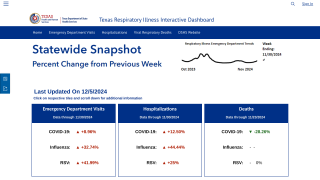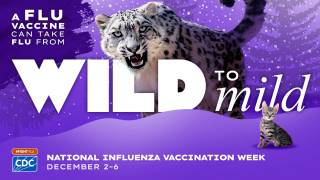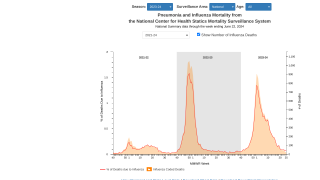Maternal Influenza Vaccination Delivers Life-Long Benefits

Every year, influenza viruses cause substantial morbidity and mortality in pregnant women and neonates, stated an editorial published by The Journal of the American Medical Association (AMA).
To reduce influenza incidence in these vulnerable populations, the World Health Organization recommended in 2012 that countries prioritize pregnant women for influenza vaccination annually.
Over the past twenty years, compelling evidence has accumulated about the complex interplay among risks of influenza virus infection to the mother, the fetus, and infants, Vs. the benefits and safety of a ‘flu shot.’
In a population-based retrospective cohort study published by JAMA on June 8, 2021, this original investigation used inverse probability of treatment weighting. It included over 28,000 children with a mean duration of follow-up of 3.6 years.
This study found maternal influenza vaccination during pregnancy was not significantly associated with the risk of immune-related health outcomes (e.g., asthma, infections) non–immune-related outcomes (e.g., neoplasms, sensory impairment), or nonspecific health outcomes (e.g., emergency visits, hospitalizations).
Among the 28,255 children (49% female, 92% born at ≥37 weeks gestation), 10,227 (36.2%) were born to women who received seasonal influenza vaccination during pregnancy.
During a mean follow-up of 3.6 years, there was no significant association between the following:
- maternal influenza vaccination and childhood asthma (incidence rate, 3.0 vs 2.5 per 1000 person-years; difference, 0.53 per 1000 person-years [95% CI, −0.15 to 1.21]; adjusted HR, 1.22 [95% CI, 0.94 to 1.59]),
- neoplasms (0.32 vs 0.26 per 1000 person-years; difference, 0.06 per 1000 person-years [95% CI, −0.16 to 0.28]; adjusted HR, 1.26 [95% CI, 0.57 to 2.78]), or
- sensory impairment (0.80 vs 0.97 per 1000 person-years; difference, −0.17 per 1000 person-years [95% CI, −0.54 to 0.21]; adjusted HR, 0.82 [95% CI, 0.49 to 1.37]).
Furthermore, maternal influenza vaccination in pregnancy was not significantly associated with infections in early childhood (incidence rate, 184.6 vs. 179.1 per 1000 person-years; difference, 5.44 per 1000 person-years [95% CI, 0.01 to 10.9]; adjusted IRR, 1.07 [95% CI, 0.99 to 1.15]).
These researchers concluded the study by stating, ‘In this population-based cohort study, maternal influenza vaccination during pregnancy was not significantly associated with an increased risk of adverse early childhood health outcomes.’
During the USA’s 2020-2021 flu season, the Centers for Disease Control and Prevention (CDC) only confirmed one influenza-associated pediatric death. This news was a vast improvement over last flu season, when (198) influenza-associated pediatric deaths were confirmed.
As the 2021-2022 flu approaches in the Northern Hemisphere, the CDC suggests everyone over six months of age speak with their healthcare provider regarding flu shot options. Influenza viruses change from year to year, so influenza vaccines are updated to include the viruses that will most likely circulate in the upcoming flu season.
Influenza vaccine types are widely available, including inactivated influenza vaccines and live attenuated influenza vaccines. For additional information, please visit the ‘Flu’ channel.
PrecisionVaccinations publishes research-based flu shot news.
Our Trust Standards: Medical Advisory Committee
























